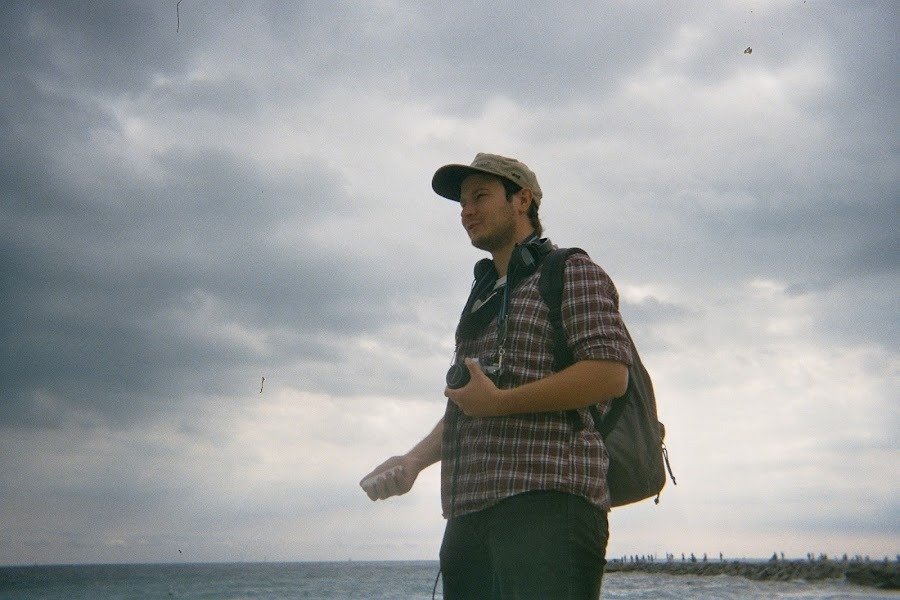Using the best lenses for night sky photography can make a huge difference when capturing the majesty of the stars above. And all the best lenses in this list allow you to capture the vastness and beauty of the night sky in stunning detail. Whether you have a Canon or a Panasonic camera, we have the best night sky lens for you.
Our top choice is the Canon RF 15-35mm f/2.8L IS USM, which stands out for its wide aperture, broad field of view, and sharp optical quality. Don’t fear if that’s not the lens for you. We have nine more excellent lenses for all the top camera brands.
Our Top 3 Lenses for Night Sky Photography
Canon RF 15-35mm F/2.8L IS USM
Canon RF 15-35mm F/2.8L IS USM
Shop Offers
×
Canon RF 15-35mm F/2.8L IS USM Deals
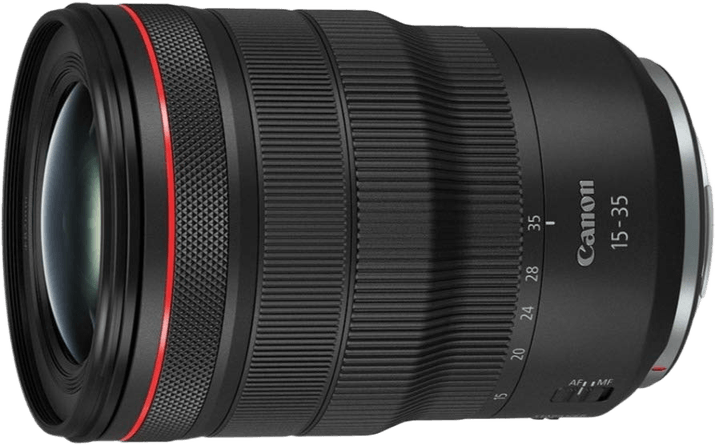
|
(second hand)
Check Price
|
(second hand)
|
Check Price
|
Buy Now!
|
If you buy a product through one of our referral links we will earn a commission (without costing you anything).
Prices last updated on .
As an Amazon Associate, I earn from qualifying purchases. Product prices and availability are accurate as of the date/time indicated and are subject to change. Any price and availability information displayed on Amazon at the time of purchase will apply to the purchase of this product.
Unavailable
Canon EF 16-35mm F/2.8L III USM
Canon EF 16-35mm F/2.8L III USM
Shop Offers
×
Canon EF 16-35mm F/2.8L III USM Deals
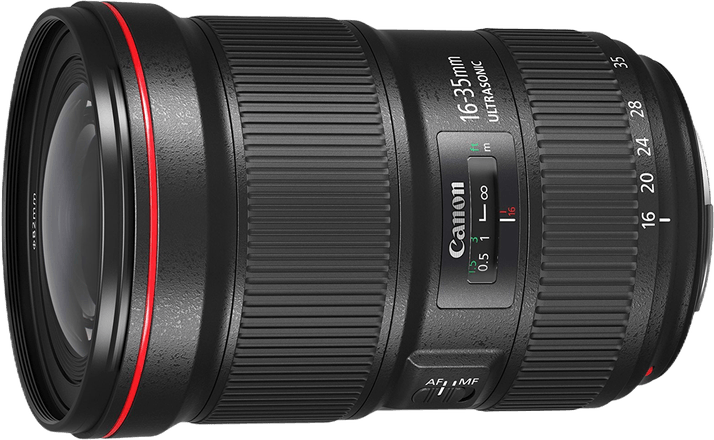
|
(second hand)
Check Price
|
(second hand)
|
Check Price
|
Buy Now!
|
If you buy a product through one of our referral links we will earn a commission (without costing you anything).
Prices last updated on .
As an Amazon Associate, I earn from qualifying purchases. Product prices and availability are accurate as of the date/time indicated and are subject to change. Any price and availability information displayed on Amazon at the time of purchase will apply to the purchase of this product.
Unavailable
Nikon NIKKOR Z 20mm F/1.8 S
Nikon NIKKOR Z 20mm F/1.8 S
Shop Offers
×
Nikon NIKKOR Z 20mm F/1.8 S Deals
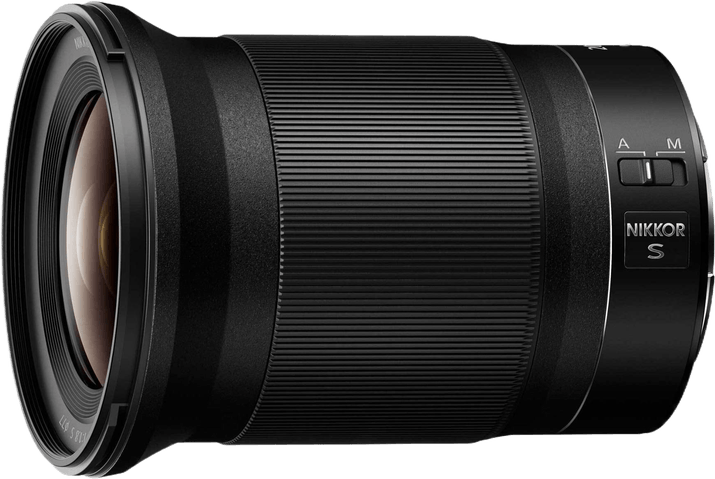
|
(second hand)
Check Price
|
(second hand)
|
Check Price
|
Buy Now!
|
If you buy a product through one of our referral links we will earn a commission (without costing you anything).
Prices last updated on .
As an Amazon Associate, I earn from qualifying purchases. Product prices and availability are accurate as of the date/time indicated and are subject to change. Any price and availability information displayed on Amazon at the time of purchase will apply to the purchase of this product.
Unavailable
What Is the Best Lens for Night Photography?
When choosing the best lens for night sky photography, aperture size, focal length, and picture quality are the key features you need to consider.
Our list includes top picks from Canon, Nikon, Sony, Fujifilm, Panasonic, and Sigma. And they have all been chosen for their ability to capture stunning celestial scenes with clarity, minimal distortion, and true color rendition.
Our Top Pick
Canon RF 15-35mm F/2.8L IS USM
Canon RF 15-35mm F/2.8L IS USM
- Versatile 15-35mm zoom for dynamic compositions
- Bright f/2.8 aperture for low-light shooting
- Robust build with weather sealing
- Exceptional sharpness and minimal aberrations
- Effective image stabilization for handheld shots
Shop Offers
×
Canon RF 15-35mm F/2.8L IS USM Deals

|
(second hand)
Check Price
|
(second hand)
|
Check Price
|
Buy Now!
|
If you buy a product through one of our referral links we will earn a commission (without costing you anything).
Prices last updated on .
As an Amazon Associate, I earn from qualifying purchases. Product prices and availability are accurate as of the date/time indicated and are subject to change. Any price and availability information displayed on Amazon at the time of purchase will apply to the purchase of this product.
Unavailable
Best Canon DSLR Lens
Canon EF 16-35mm F/2.8L III USM
Canon EF 16-35mm F/2.8L III USM
- Ideal for dynamic landscapes and architectural shots
- Constant f/2.8 aperture enhances low-light performance
- Professional-grade durability and weather resistance
- Superior sharpness with minimal chromatic aberration
- Fast, accurate autofocus system for crisp images
Shop Offers
×
Canon EF 16-35mm F/2.8L III USM Deals

|
(second hand)
Check Price
|
(second hand)
|
Check Price
|
Buy Now!
|
If you buy a product through one of our referral links we will earn a commission (without costing you anything).
Prices last updated on .
As an Amazon Associate, I earn from qualifying purchases. Product prices and availability are accurate as of the date/time indicated and are subject to change. Any price and availability information displayed on Amazon at the time of purchase will apply to the purchase of this product.
Unavailable
Best Nikon Mirrorless Lens
Nikon NIKKOR Z 20mm F/1.8 S
Nikon NIKKOR Z 20mm F/1.8 S
- Ultra-wide 20mm focal length for expansive shots
- Large f/1.8 aperture for stellar low-light performance
- Compact design enhances portability for fieldwork
- Exceptional edge-to-edge sharpness and clarity
- Fast, silent autofocus ideal for video and stills
Shop Offers
×
Nikon NIKKOR Z 20mm F/1.8 S Deals

|
(second hand)
Check Price
|
(second hand)
|
Check Price
|
Buy Now!
|
If you buy a product through one of our referral links we will earn a commission (without costing you anything).
Prices last updated on .
As an Amazon Associate, I earn from qualifying purchases. Product prices and availability are accurate as of the date/time indicated and are subject to change. Any price and availability information displayed on Amazon at the time of purchase will apply to the purchase of this product.
Unavailable
Best Nikon DSLR Lens
Nikon AF-S NIKKOR 14-24mm F/2.8G ED
Nikon AF-S NIKKOR 14-24mm F/2.8G ED
- Ultra-wide 14-24mm range for expansive landscapes
- Constant f/2.8 aperture for consistent low-light performance
- Professional-grade build with comprehensive weather sealing
- Superior optical quality with minimal distortion
- Fast, precise autofocus system for dynamic shooting scenarios
Shop Offers
×
Nikon AF-S NIKKOR 14-24mm F/2.8G ED Deals
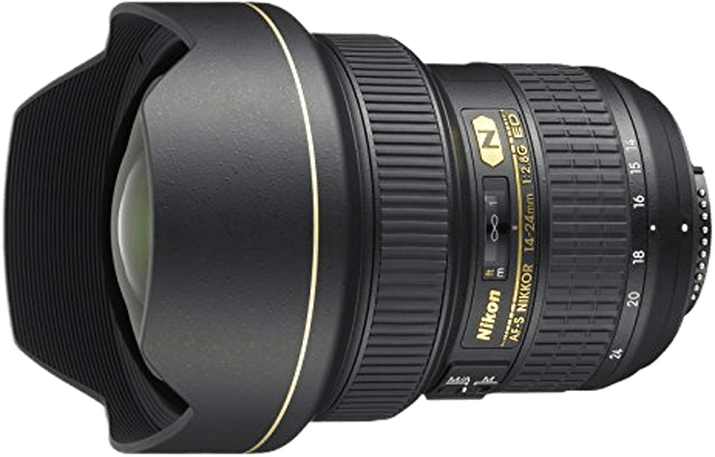
|
(second hand)
Check Price
|
(second hand)
|
Check Price
|
Buy Now!
|
If you buy a product through one of our referral links we will earn a commission (without costing you anything).
Prices last updated on .
As an Amazon Associate, I earn from qualifying purchases. Product prices and availability are accurate as of the date/time indicated and are subject to change. Any price and availability information displayed on Amazon at the time of purchase will apply to the purchase of this product.
Unavailable
Best Sony APS-C Lens
Sony E 15mm F/1.4 G SEL15F14G
Sony E 15mm F/1.4 G SEL15F14G
- Exceptional f/1.4 aperture for low-light excellence
- G Series quality ensures professional-grade images
- Compact, lightweight design for easy portability
- Fast, silent autofocus perfect for video and stills
- Superior sharpness and clarity across the frame
Shop Offers
×
Sony E 15mm F/1.4 G SEL15F14G Deals
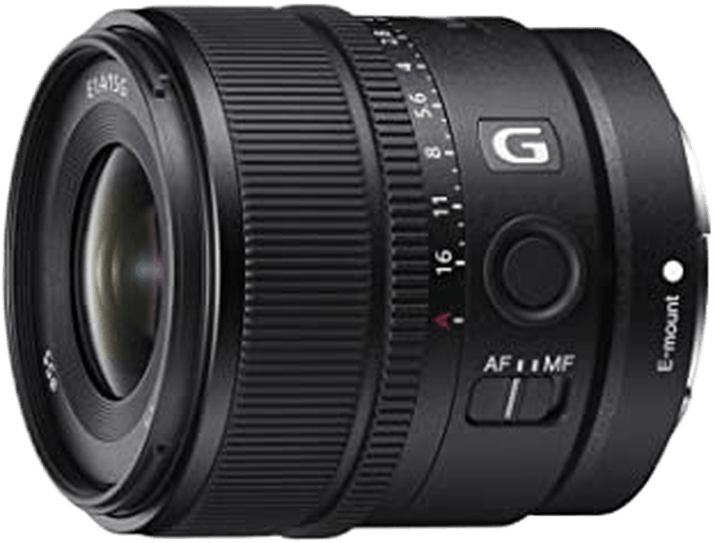
|
(second hand)
Check Price
|
(second hand)
|
Check Price
|
Buy Now!
|
If you buy a product through one of our referral links we will earn a commission (without costing you anything).
Prices last updated on .
As an Amazon Associate, I earn from qualifying purchases. Product prices and availability are accurate as of the date/time indicated and are subject to change. Any price and availability information displayed on Amazon at the time of purchase will apply to the purchase of this product.
Unavailable
Best Sony Full Frame Lens
Sony FE 24mm F/1.4 GM SEL24F14GM
Sony FE 24mm F/1.4 GM SEL24F14GM
- Unmatched f/1.4 aperture for superior low-light shots
- G Master design ensures peak optical performance
- Compact and lightweight for ultimate portability
- Precise, quiet autofocus ideal for video and photography
- Exceptional bokeh for artistic background separation
Shop Offers
×
Sony FE 24mm F/1.4 GM SEL24F14GM Deals
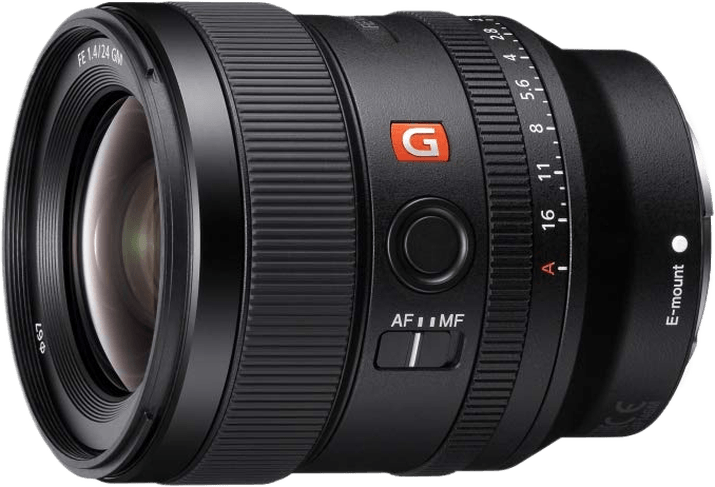
|
(second hand)
Check Price
|
(second hand)
|
Check Price
|
Buy Now!
|
If you buy a product through one of our referral links we will earn a commission (without costing you anything).
Prices last updated on .
As an Amazon Associate, I earn from qualifying purchases. Product prices and availability are accurate as of the date/time indicated and are subject to change. Any price and availability information displayed on Amazon at the time of purchase will apply to the purchase of this product.
Unavailable
Best Fujifilm Lens
Fujifilm FUJINON XF 18mm F/1.4 R LM WR
Fujifilm FUJINON XF 18mm F/1.4 R LM WR
- Exceptional f/1.4 aperture for low-light mastery
- Weather-resistant build for reliable outdoor shooting
- Fast, accurate autofocus with Linear Motor technology
- Superior edge-to-edge sharpness and minimal aberrations
- Compact design enhances portability for fieldwork
Shop Offers
×
Fujifilm FUJINON XF 18mm F/1.4 R LM WR Deals
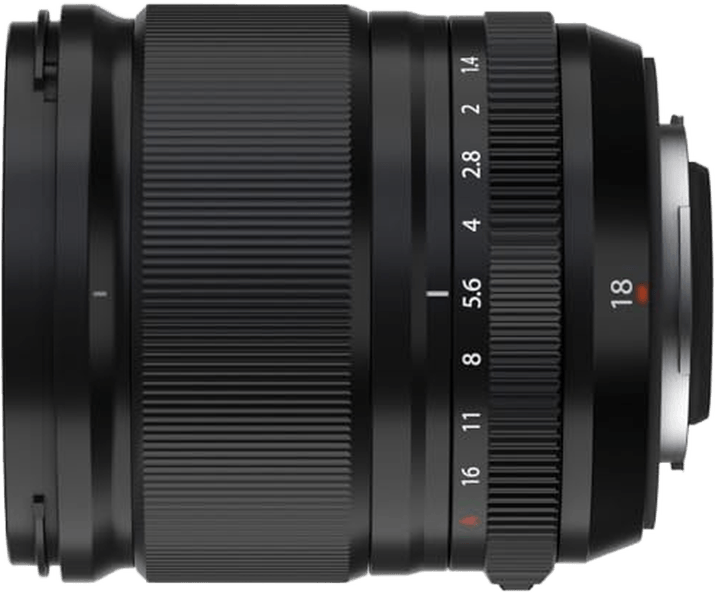
|
(second hand)
Check Price
|
(second hand)
|
Check Price
|
Buy Now!
|
If you buy a product through one of our referral links we will earn a commission (without costing you anything).
Prices last updated on .
As an Amazon Associate, I earn from qualifying purchases. Product prices and availability are accurate as of the date/time indicated and are subject to change. Any price and availability information displayed on Amazon at the time of purchase will apply to the purchase of this product.
Unavailable
Best Panasonic Lens
Panasonic LUMIX S 18mm F/1.8
Panasonic LUMIX S 18mm F/1.8
- Ultra-wide 18mm perspective for expansive compositions
- Bright f/1.8 aperture for exceptional low-light performance
- Compact, lightweight design for easy travel and use
- Fast, precise autofocus ideal for dynamic shooting scenarios
- Robust build with weather resistance for outdoor reliability
Shop Offers
×
Panasonic LUMIX S 18mm F/1.8 Deals
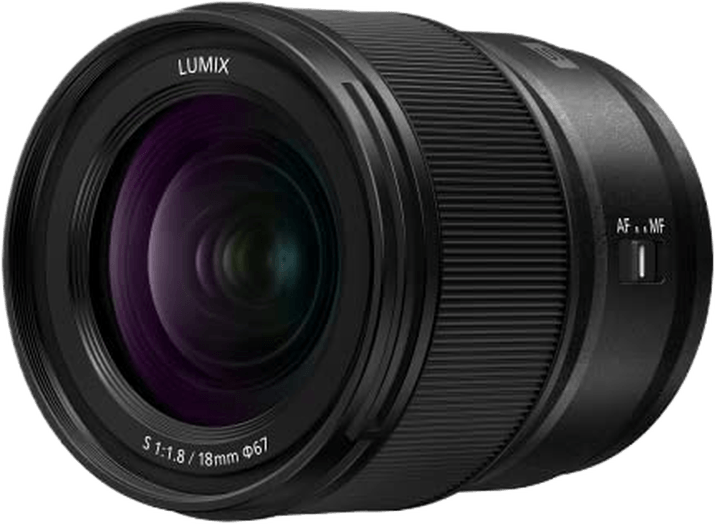
|
(second hand)
Check Price
|
(second hand)
|
Check Price
|
Buy Now!
|
If you buy a product through one of our referral links we will earn a commission (without costing you anything).
Prices last updated on .
As an Amazon Associate, I earn from qualifying purchases. Product prices and availability are accurate as of the date/time indicated and are subject to change. Any price and availability information displayed on Amazon at the time of purchase will apply to the purchase of this product.
Unavailable
Best Sigma E-mount Lens
Sigma 23mm F/1.4 DC DN | C
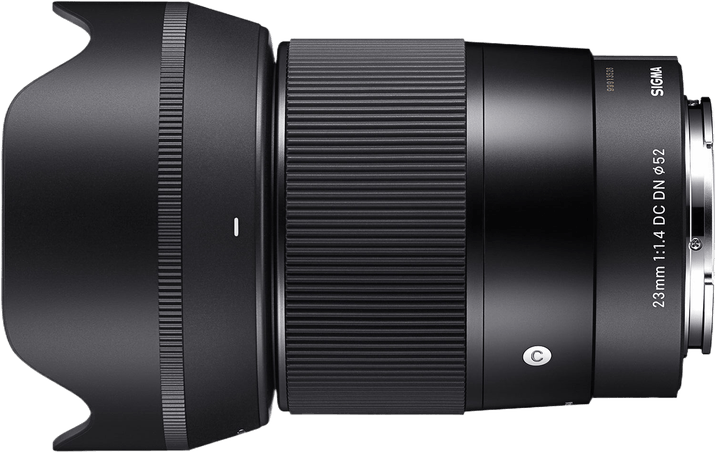
Sigma 23mm F/1.4 DC DN | C
- Large f/1.4 aperture for exceptional low-light shots
- Compact and lightweight for superior portability
- Fast, silent autofocus perfect for both stills and video
- Outstanding sharpness and clarity across the frame
- Designed for APS-C sensors, offering versatile use
Shop 3 Versions
Fujifilm X Mount
×
Deals

|
(second hand)
Check Price
|
(second hand)
|
Check Price
|
Buy Now!
|
If you buy a product through one of our referral links we will earn a commission (without costing you anything).
Prices last updated on .
As an Amazon Associate, I earn from qualifying purchases. Product prices and availability are accurate as of the date/time indicated and are subject to change. Any price and availability information displayed on Amazon at the time of purchase will apply to the purchase of this product.
Unavailable
Leica L Mount
×
Deals

|
(second hand)
Check Price
|
(second hand)
|
Check Price
|
Buy Now!
|
If you buy a product through one of our referral links we will earn a commission (without costing you anything).
Prices last updated on .
As an Amazon Associate, I earn from qualifying purchases. Product prices and availability are accurate as of the date/time indicated and are subject to change. Any price and availability information displayed on Amazon at the time of purchase will apply to the purchase of this product.
Unavailable
Sony E Mount
×
Deals

|
(second hand)
Check Price
|
(second hand)
|
Check Price
|
Buy Now!
|
If you buy a product through one of our referral links we will earn a commission (without costing you anything).
Prices last updated on .
As an Amazon Associate, I earn from qualifying purchases. Product prices and availability are accurate as of the date/time indicated and are subject to change. Any price and availability information displayed on Amazon at the time of purchase will apply to the purchase of this product.
Unavailable
Best Sigma Z-mount Lens
Sigma 16mm F/1.4 DC DN | C
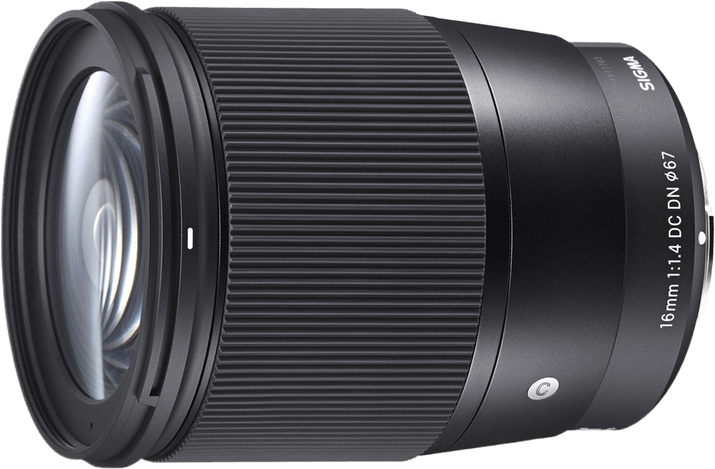
Sigma 16mm F/1.4 DC DN | C
- Bright f/1.4 aperture for superior low-light capability
- Wide 16mm angle perfect for landscapes and architecture
- Fast and silent autofocus system enhances video recording
- Compact design ensures easy handling and mobility
- Exceptional optical quality with minimal distortion
Shop 5 Versions
Sony E Mount
×
Deals

|
(second hand)
Check Price
|
(second hand)
|
Check Price
|
Buy Now!
|
If you buy a product through one of our referral links we will earn a commission (without costing you anything).
Prices last updated on .
As an Amazon Associate, I earn from qualifying purchases. Product prices and availability are accurate as of the date/time indicated and are subject to change. Any price and availability information displayed on Amazon at the time of purchase will apply to the purchase of this product.
Unavailable
Canon EF-M Mount
×
Deals

|
(second hand)
Check Price
|
(second hand)
|
Check Price
|
Buy Now!
|
If you buy a product through one of our referral links we will earn a commission (without costing you anything).
Prices last updated on .
As an Amazon Associate, I earn from qualifying purchases. Product prices and availability are accurate as of the date/time indicated and are subject to change. Any price and availability information displayed on Amazon at the time of purchase will apply to the purchase of this product.
Unavailable
Fujifilm X Mount
×
Deals

|
(second hand)
Check Price
|
(second hand)
|
Check Price
|
Buy Now!
|
If you buy a product through one of our referral links we will earn a commission (without costing you anything).
Prices last updated on .
As an Amazon Associate, I earn from qualifying purchases. Product prices and availability are accurate as of the date/time indicated and are subject to change. Any price and availability information displayed on Amazon at the time of purchase will apply to the purchase of this product.
Unavailable
Leica L Mount
×
Deals

|
(second hand)
Check Price
|
(second hand)
|
Check Price
|
Buy Now!
|
If you buy a product through one of our referral links we will earn a commission (without costing you anything).
Prices last updated on .
As an Amazon Associate, I earn from qualifying purchases. Product prices and availability are accurate as of the date/time indicated and are subject to change. Any price and availability information displayed on Amazon at the time of purchase will apply to the purchase of this product.
Unavailable
Nikon Z Mount
×
Deals

|
(second hand)
Check Price
|
(second hand)
|
Check Price
|
Buy Now!
|
If you buy a product through one of our referral links we will earn a commission (without costing you anything).
Prices last updated on .
As an Amazon Associate, I earn from qualifying purchases. Product prices and availability are accurate as of the date/time indicated and are subject to change. Any price and availability information displayed on Amazon at the time of purchase will apply to the purchase of this product.
Unavailable
Our Favorite Lenses for Night Sky Photography
Let’s take a closer look at our favorite lenses for night sky photography. From wide apertures to sharp edge-to-edge clarity, there’s a lens here for every astrophotography enthusiast. Explore these options to find the perfect night sky lens for your camera.
1. Canon RF 15-35mm f/2.8L IS USM
Our Top Pick
Shop Offers
×
Canon RF 15-35mm F/2.8L IS USM Deals

|
(second hand)
Check Price
|
(second hand)
|
Check Price
|
Buy Now!
|
If you buy a product through one of our referral links we will earn a commission (without costing you anything).
Prices last updated on .
As an Amazon Associate, I earn from qualifying purchases. Product prices and availability are accurate as of the date/time indicated and are subject to change. Any price and availability information displayed on Amazon at the time of purchase will apply to the purchase of this product.
Unavailable

Shop Offers
×
Canon RF 15-35mm F/2.8L IS USM Deals

|
(second hand)
Check Price
|
(second hand)
|
Check Price
|
Buy Now!
|
If you buy a product through one of our referral links we will earn a commission (without costing you anything).
Prices last updated on .
As an Amazon Associate, I earn from qualifying purchases. Product prices and availability are accurate as of the date/time indicated and are subject to change. Any price and availability information displayed on Amazon at the time of purchase will apply to the purchase of this product.
Unavailable
|
Brand |
Brand
Canon
|
|
Lens Weight |
Lens Weight
840 g
|
|
Maximum Aperture |
Maximum Aperture
f/ 2.8
|
|
Focal Length Range |
Focal Length Range
15-35 mm
|
|
Image Stabilization |
Image Stabilization
|
Canon RF 15-35mm F/2.8L IS USM
The Canon RF 15-35mm f/2.8L IS USM lens is a top pick for night sky photography. It’s a brilliant wide-angle zoom that’s compatible with Canon’s R-series mirrorless cameras.
The wide-angle zoom range gives a broad view, which is ideal for capturing large swathes of the sky above. And the zoom gives you more flexibility with composition.
Its sharpness from edge to edge ensures stars are crisp and clear. This lens has minimal distortion, which is important for keeping celestial shapes accurate. Its optical design includes specialist elements that reduce chromatic aberration. This means less color fringing around bright stars.
Its wide aperture of f/2.8 is perfect for capturing the stars in low light. And it’s constant, so you have access to it at all points in the zoom range.
Compared to the Canon EF 16-35mm f/2.8L III USM, the RF 15-35mm f/2.8L IS USM is better suited for Canon’s mirrorless cameras. This gives it an edge in terms of image stabilization and autofocus performance in low light.
Tf you have a Canon mirrorless camera, the Canon RF 15-35mm f/2.8L IS USM is the perfect lens for night sky photography.
2. Canon EF 16-35mm f/2.8L III USM
Best Canon DSLR Lens
Shop Offers
×
Canon EF 16-35mm F/2.8L III USM Deals

|
(second hand)
Check Price
|
(second hand)
|
Check Price
|
Buy Now!
|
If you buy a product through one of our referral links we will earn a commission (without costing you anything).
Prices last updated on .
As an Amazon Associate, I earn from qualifying purchases. Product prices and availability are accurate as of the date/time indicated and are subject to change. Any price and availability information displayed on Amazon at the time of purchase will apply to the purchase of this product.
Unavailable

Shop Offers
×
Canon EF 16-35mm F/2.8L III USM Deals

|
(second hand)
Check Price
|
(second hand)
|
Check Price
|
Buy Now!
|
If you buy a product through one of our referral links we will earn a commission (without costing you anything).
Prices last updated on .
As an Amazon Associate, I earn from qualifying purchases. Product prices and availability are accurate as of the date/time indicated and are subject to change. Any price and availability information displayed on Amazon at the time of purchase will apply to the purchase of this product.
Unavailable
|
Brand |
Brand
Canon
|
|
Lens Weight |
Lens Weight
790 g
|
|
Maximum Aperture |
Maximum Aperture
f/ 2.8
|
|
Focal Length Range |
Focal Length Range
16-35 mm
|
|
Image Stabilization |
Image Stabilization
|
Canon EF 16-35mm F/2.8L III USM
The Canon EF 16-35mm f/2.8L III USM is ideal for night sky photography thanks to its fast aperture and wide angle of view. It’s compatible with Canon DSLR cameras.
The 16-35mm focal range allows photographers to take in vast expanses of the night sky while providing some flexibility.
A fast f/2.8 aperture offers excellent light intake, helping you maintain a faster shutter speed so the stars lose sharpness.
The superb optical sharpness ensures stars appear crisp, enhancing the quality of astrophotography images.
This lens also delivers minimal distortion, which is crucial for accurately portraying the night sky’s grandeur. Special coatings on the lens reduce flare and ghosting, preserving the contrast and color of celestial scenes.
A lack of image stabilization reduces the lens’s overall versatility. But it isn’t a necessary feature for astrophotography, where you’ll be using a tripod.
Its build quality and weather sealing make it reliable for outdoor night shoots. It’s easy to see why the Canon EF 16-35mm f/2.8L III USM is so high on our list of astrophotography lenses.
3. Nikon Z 20mm f/1.8 S
Best Nikon Mirrorless Lens
Shop Offers
×
Nikon NIKKOR Z 20mm F/1.8 S Deals

|
(second hand)
Check Price
|
(second hand)
|
Check Price
|
Buy Now!
|
If you buy a product through one of our referral links we will earn a commission (without costing you anything).
Prices last updated on .
As an Amazon Associate, I earn from qualifying purchases. Product prices and availability are accurate as of the date/time indicated and are subject to change. Any price and availability information displayed on Amazon at the time of purchase will apply to the purchase of this product.
Unavailable

Shop Offers
×
Nikon NIKKOR Z 20mm F/1.8 S Deals

|
(second hand)
Check Price
|
(second hand)
|
Check Price
|
Buy Now!
|
If you buy a product through one of our referral links we will earn a commission (without costing you anything).
Prices last updated on .
As an Amazon Associate, I earn from qualifying purchases. Product prices and availability are accurate as of the date/time indicated and are subject to change. Any price and availability information displayed on Amazon at the time of purchase will apply to the purchase of this product.
Unavailable
|
Brand |
Brand
Nikon
|
|
Lens Weight |
Lens Weight
505 g
|
|
Maximum Aperture |
Maximum Aperture
f/ 1.8
|
|
Focal Length Range |
Focal Length Range
20 mm
|
|
Image Stabilization |
Image Stabilization
|
Nikon NIKKOR Z 20mm F/1.8 S
The Nikon Z 20mm f/1.8 S is a prime lens that excels in night sky photography. It’s the best option if you’re a Nikon mirrorless user.
This lens is sharp across the frame, ensuring stars are crisp and clear even at the edges. Thanks to several Extra-low Dispersion (ED) elements, it accurately portrays the vastness of the night sky with minimal distortion. Chromatic aberration is barely existent, so there’s no color fringing around bright stars.
Its f/1.8 aperture lets in plenty of light, making it ideal for capturing the Milky Way. A Nano Crystal coating on the outer elements prevents glare, improving light transmission. It also gives you clearer images, so each star shines brightly.
For photographers looking to capture the night sky, the Nikon Z 20mm f/1.8 S is a top choice. Its wide aperture, sharpness, and portability make it a valuable tool for astrophotography.
4. Nikon AF-S 14-24mm f/2.8G ED
Best Nikon DSLR Lens
Shop Offers
×
Nikon AF-S NIKKOR 14-24mm F/2.8G ED Deals

|
(second hand)
Check Price
|
(second hand)
|
Check Price
|
Buy Now!
|
If you buy a product through one of our referral links we will earn a commission (without costing you anything).
Prices last updated on .
As an Amazon Associate, I earn from qualifying purchases. Product prices and availability are accurate as of the date/time indicated and are subject to change. Any price and availability information displayed on Amazon at the time of purchase will apply to the purchase of this product.
Unavailable

Shop Offers
×
Nikon AF-S NIKKOR 14-24mm F/2.8G ED Deals

|
(second hand)
Check Price
|
(second hand)
|
Check Price
|
Buy Now!
|
If you buy a product through one of our referral links we will earn a commission (without costing you anything).
Prices last updated on .
As an Amazon Associate, I earn from qualifying purchases. Product prices and availability are accurate as of the date/time indicated and are subject to change. Any price and availability information displayed on Amazon at the time of purchase will apply to the purchase of this product.
Unavailable
|
Brand |
Brand
Nikon
|
|
Lens Weight |
Lens Weight
970 g
|
|
Maximum Aperture |
Maximum Aperture
f/ 2.8
|
|
Focal Length Range |
Focal Length Range
14-24 mm
|
|
Image Stabilization |
Image Stabilization
|
Nikon AF-S NIKKOR 14-24mm F/2.8G ED
The Nikon AF-S 14-24mm f/2.8G ED is the best Nikon DSLR lens for night sky photography. Its wide aperture of f/2.8 gathers ample light, crucial for capturing the faint details of the Milky Way.
The zoom range offers versatility while still delivering a wide viewing angle. You have more control over composition, but you’re not losing the trademark wide angle that gives night sky photography its awe-inspiring power.
Sharpness is exceptional across the frame, ensuring stars are rendered with clarity. The lens controls distortion well, a key factor in maintaining the natural beauty of the night sky.
This lens is built to last, with a robust design that can withstand outdoor photography. Weighing 2 lbs (907 g), it’s relatively heavy, but its performance in low-light conditions justifies the extra weight.
For those passionate about astrophotography, the Nikon AF-S 14-24mm f/2.8G ED is a powerful tool. Its combination of wide aperture, sharpness, and durable construction makes it ideal for capturing the cosmos. While it lacks image stabilization, this is seldom an issue when using a tripod.
5. Sony E 15mm f/1.4 G
Best Sony APS-C Lens
Shop Offers
×
Sony E 15mm F/1.4 G SEL15F14G Deals

|
(second hand)
Check Price
|
(second hand)
|
Check Price
|
Buy Now!
|
If you buy a product through one of our referral links we will earn a commission (without costing you anything).
Prices last updated on .
As an Amazon Associate, I earn from qualifying purchases. Product prices and availability are accurate as of the date/time indicated and are subject to change. Any price and availability information displayed on Amazon at the time of purchase will apply to the purchase of this product.
Unavailable

Shop Offers
×
Sony E 15mm F/1.4 G SEL15F14G Deals

|
(second hand)
Check Price
|
(second hand)
|
Check Price
|
Buy Now!
|
If you buy a product through one of our referral links we will earn a commission (without costing you anything).
Prices last updated on .
As an Amazon Associate, I earn from qualifying purchases. Product prices and availability are accurate as of the date/time indicated and are subject to change. Any price and availability information displayed on Amazon at the time of purchase will apply to the purchase of this product.
Unavailable
|
Brand |
Brand
Sony
|
|
Lens Weight |
Lens Weight
219 g
|
|
Maximum Aperture |
Maximum Aperture
f/ 1.4
|
|
Focal Length Range |
Focal Length Range
15 mm
|
|
Image Stabilization |
Image Stabilization
|
Sony E 15mm F/1.4 G SEL15F14G
Amazon.com
$648.00 $749.99
The Sony E 15mm f/1.4 G is the best astrophotography lens for Sony APS-C cameras.
The 15mm focal length is equivalent to 23mm on a full frame camera. That narrows the viewing angle slightly, but you can still capture large areas of the sky above.
Its f/1.4 aperture is exceptionally wide, allowing for significant light capture. That means you can reduce your shutter speed so the camera doesn’t pick up any movement from the stars.
Maintaining sharpness from center the center right to the edges, the lens ensures stars and galaxies are crisp against the black backdrop. It features elements that reduce chromatic aberration and capture light without distorting the image.
It’s notably light and easy to carry, making it ideal for photographers on the move. Despite its compact size, the lens does not compromise on optical quality.
For those aiming to capture the beauty of the night sky, the Sony E 15mm f/1.4 G is a top choice. Its wide aperture, excellent sharpness, and portability make it a valuable tool for night sky photography.
6. Sony FE 24mm f/1.4 GM
Best Sony Full Frame Lens
Shop Offers
×
Sony FE 24mm F/1.4 GM SEL24F14GM Deals

|
(second hand)
Check Price
|
(second hand)
|
Check Price
|
Buy Now!
|
If you buy a product through one of our referral links we will earn a commission (without costing you anything).
Prices last updated on .
As an Amazon Associate, I earn from qualifying purchases. Product prices and availability are accurate as of the date/time indicated and are subject to change. Any price and availability information displayed on Amazon at the time of purchase will apply to the purchase of this product.
Unavailable

Shop Offers
×
Sony FE 24mm F/1.4 GM SEL24F14GM Deals

|
(second hand)
Check Price
|
(second hand)
|
Check Price
|
Buy Now!
|
If you buy a product through one of our referral links we will earn a commission (without costing you anything).
Prices last updated on .
As an Amazon Associate, I earn from qualifying purchases. Product prices and availability are accurate as of the date/time indicated and are subject to change. Any price and availability information displayed on Amazon at the time of purchase will apply to the purchase of this product.
Unavailable
|
Brand |
Brand
Sony
|
|
Lens Weight |
Lens Weight
445 g
|
|
Maximum Aperture |
Maximum Aperture
f/ 1.4
|
|
Focal Length Range |
Focal Length Range
24 mm
|
|
Image Stabilization |
Image Stabilization
|
Sony FE 24mm F/1.4 GM SEL24F14GM
Amazon.com
$1,298.00 $1,399.99
The Sony FE 24mm f/1.4 GM is a beautiful prime lens for night sky photography. It’s also the best option if you’re using a Sony full frame camera.
Milky Way photographers will love the super-fast f/1.4 maximum aperture. And the superior optical quality means you get exquisite sharpness from corner to corner.
The lens’s construction includes elements that minimize chromatic aberration, ensuring that starlight is captured with true colors and minimal fringing.
Its 24mm focal length offers a broad view, perfect for expansive shots of the Milky Way. The lens is sharp across the frame, ensuring stars are depicted clearly.
The Sony FE 24mm f/1.4 GM is the perfect lens for photographers with a passion for the sky at night. It’s a phenomenal wide-angle prime lens and the perfect match for a high-resolution Sony camera.
7. Fujifilm XF 18mm f/1.4 R LM WR
Best Fujifilm Lens
Shop Offers
×
Fujifilm FUJINON XF 18mm F/1.4 R LM WR Deals

|
(second hand)
Check Price
|
(second hand)
|
Check Price
|
Buy Now!
|
If you buy a product through one of our referral links we will earn a commission (without costing you anything).
Prices last updated on .
As an Amazon Associate, I earn from qualifying purchases. Product prices and availability are accurate as of the date/time indicated and are subject to change. Any price and availability information displayed on Amazon at the time of purchase will apply to the purchase of this product.
Unavailable

Shop Offers
×
Fujifilm FUJINON XF 18mm F/1.4 R LM WR Deals

|
(second hand)
Check Price
|
(second hand)
|
Check Price
|
Buy Now!
|
If you buy a product through one of our referral links we will earn a commission (without costing you anything).
Prices last updated on .
As an Amazon Associate, I earn from qualifying purchases. Product prices and availability are accurate as of the date/time indicated and are subject to change. Any price and availability information displayed on Amazon at the time of purchase will apply to the purchase of this product.
Unavailable
|
Brand |
Brand
Fujifilm
|
|
Lens Weight |
Lens Weight
370 g
|
|
Maximum Aperture |
Maximum Aperture
f/ 1.4
|
|
Focal Length Range |
Focal Length Range
18 mm
|
|
Image Stabilization |
Image Stabilization
|
Fujifilm FUJINON XF 18mm F/1.4 R LM WR
The Fujifilm XF 18mm f/1.4 R LM WR lens is a fantastic choice for astrophotography enthusiasts using a Fujifilm camera.
Its wide f/1.4 aperture offers excellent light intake. And the 18mm focal length offers a broad field of view, perfect for capturing expansive celestial scenes.
Sharpness is maintained from center to edge, ensuring stars are depicted clearly. One ED and three aspherical elements produce clear, distortion-free images without fail.
Weighing just 0.82 lb (370 g), it’s notably light and easy to carry. It’s also weather-resistant, so you’ll have no problem using it outdoors.
It’s a versatile wide-angle prime. But the fast aperture and sharp optics make the Fujifilm XF 18mm f/1.4 R LM WR a top choice for night sky photography enthusiasts.
8. Panasonic LUMIX S 18mm f/1.8
Best Panasonic Lens
Shop Offers
×
Panasonic LUMIX S 18mm F/1.8 Deals

|
(second hand)
Check Price
|
(second hand)
|
Check Price
|
Buy Now!
|
If you buy a product through one of our referral links we will earn a commission (without costing you anything).
Prices last updated on .
As an Amazon Associate, I earn from qualifying purchases. Product prices and availability are accurate as of the date/time indicated and are subject to change. Any price and availability information displayed on Amazon at the time of purchase will apply to the purchase of this product.
Unavailable

Shop Offers
×
Panasonic LUMIX S 18mm F/1.8 Deals

|
(second hand)
Check Price
|
(second hand)
|
Check Price
|
Buy Now!
|
If you buy a product through one of our referral links we will earn a commission (without costing you anything).
Prices last updated on .
As an Amazon Associate, I earn from qualifying purchases. Product prices and availability are accurate as of the date/time indicated and are subject to change. Any price and availability information displayed on Amazon at the time of purchase will apply to the purchase of this product.
Unavailable
|
Brand |
Brand
Panasonic LUMIX
|
|
Lens Weight |
Lens Weight
340 g
|
|
Maximum Aperture |
Maximum Aperture
f/ 1.8
|
|
Focal Length Range |
Focal Length Range
18 mm
|
|
Image Stabilization |
Image Stabilization
|
Panasonic LUMIX S 18mm F/1.8
Amazon.com
$897.99 $997.99
If you’re a photographer with a Panasonic camera, the Panasonic LUMIX S 18mm f/1.8 is the best night sky lens for you.
This lens’s 18mm focal length offers a broad field of view, perfect for capturing expansive celestial scenes.
Its f/1.8 aperture lets in plenty of light, helping you work with shorter shutter speeds.
The quality of glassware within the lens ensures sharp night sky images. With one Ultra Extra-low Dispersion (UED), one Ultra-High Refractive, and three ED elements, the image quality is breathtaking. It’s sharp from edge to edge and there’s zero distortion.
It’s a robust lens that’s dust, freeze, and splash-resistant. That means you can use it outside at night even in bad or very cold weather. Being able to work at -10º C is helpful if you’re working in cold climates or at high elevations.
Producing tack-sharp images at such a wide angle isn’t easy. But the Panasonic LUMIX S 18mm f/1.8 manages it with aplomb, making it one of the best lenses for night photography.
9. Sigma 23mm f/1.4 DC DN | C
Best Sigma E-mount Lens
Shop 3 Versions
Fujifilm X Mount
×
Deals

|
(second hand)
Check Price
|
(second hand)
|
Check Price
|
Buy Now!
|
If you buy a product through one of our referral links we will earn a commission (without costing you anything).
Prices last updated on .
As an Amazon Associate, I earn from qualifying purchases. Product prices and availability are accurate as of the date/time indicated and are subject to change. Any price and availability information displayed on Amazon at the time of purchase will apply to the purchase of this product.
Unavailable
Leica L Mount
×
Deals

|
(second hand)
Check Price
|
(second hand)
|
Check Price
|
Buy Now!
|
If you buy a product through one of our referral links we will earn a commission (without costing you anything).
Prices last updated on .
As an Amazon Associate, I earn from qualifying purchases. Product prices and availability are accurate as of the date/time indicated and are subject to change. Any price and availability information displayed on Amazon at the time of purchase will apply to the purchase of this product.
Unavailable
Sony E Mount
×
Deals

|
(second hand)
Check Price
|
(second hand)
|
Check Price
|
Buy Now!
|
If you buy a product through one of our referral links we will earn a commission (without costing you anything).
Prices last updated on .
As an Amazon Associate, I earn from qualifying purchases. Product prices and availability are accurate as of the date/time indicated and are subject to change. Any price and availability information displayed on Amazon at the time of purchase will apply to the purchase of this product.
Unavailable

Shop 3 Versions
Fujifilm X Mount
×
Deals

|
(second hand)
Check Price
|
(second hand)
|
Check Price
|
Buy Now!
|
If you buy a product through one of our referral links we will earn a commission (without costing you anything).
Prices last updated on .
As an Amazon Associate, I earn from qualifying purchases. Product prices and availability are accurate as of the date/time indicated and are subject to change. Any price and availability information displayed on Amazon at the time of purchase will apply to the purchase of this product.
Unavailable
Leica L Mount
×
Deals

|
(second hand)
Check Price
|
(second hand)
|
Check Price
|
Buy Now!
|
If you buy a product through one of our referral links we will earn a commission (without costing you anything).
Prices last updated on .
As an Amazon Associate, I earn from qualifying purchases. Product prices and availability are accurate as of the date/time indicated and are subject to change. Any price and availability information displayed on Amazon at the time of purchase will apply to the purchase of this product.
Unavailable
Sony E Mount
×
Deals

|
(second hand)
Check Price
|
(second hand)
|
Check Price
|
Buy Now!
|
If you buy a product through one of our referral links we will earn a commission (without costing you anything).
Prices last updated on .
As an Amazon Associate, I earn from qualifying purchases. Product prices and availability are accurate as of the date/time indicated and are subject to change. Any price and availability information displayed on Amazon at the time of purchase will apply to the purchase of this product.
Unavailable
|
Brand |
Brand
Sigma
|
|
Lens Weight |
Lens Weight
335 g
|
|
Maximum Aperture |
Maximum Aperture
f/ 1.4
|
|
Focal Length Range |
Focal Length Range
23 mm
|
|
Image Stabilization |
Image Stabilization
|
Sigma 23mm F/1.4 DC DN | C
The Sigma 23mm f/1.4 DC DN | C is a brilliant wide-angle prime for Sony cameras. The sharp optics and wide field of view make it another great choice for night sky photographers.
A 23mm focal length and fast f/1.4 max aperture are the perfect partnership for astrophotography. It also delivers sharp images with barely a hint of distortion or color fringing.
Weighing just 0.73lb (330 g), it’s notably light and easy to carry, making it an easy fit for any good camera backpack.
The Sigma 23mm f/1.4 DC DN | C is an affordable alternative for Sony camera users. The price is more than reasonable, but it still delivers sharp images. It’s a great way to get started with night sky photography.
10. Sigma 16mm f/1.4 DC DN | C
Best Sigma Z-mount Lens
Shop 5 Versions
Sony E Mount
×
Deals

|
(second hand)
Check Price
|
(second hand)
|
Check Price
|
Buy Now!
|
If you buy a product through one of our referral links we will earn a commission (without costing you anything).
Prices last updated on .
As an Amazon Associate, I earn from qualifying purchases. Product prices and availability are accurate as of the date/time indicated and are subject to change. Any price and availability information displayed on Amazon at the time of purchase will apply to the purchase of this product.
Unavailable
Canon EF-M Mount
×
Deals

|
(second hand)
Check Price
|
(second hand)
|
Check Price
|
Buy Now!
|
If you buy a product through one of our referral links we will earn a commission (without costing you anything).
Prices last updated on .
As an Amazon Associate, I earn from qualifying purchases. Product prices and availability are accurate as of the date/time indicated and are subject to change. Any price and availability information displayed on Amazon at the time of purchase will apply to the purchase of this product.
Unavailable
Fujifilm X Mount
×
Deals

|
(second hand)
Check Price
|
(second hand)
|
Check Price
|
Buy Now!
|
If you buy a product through one of our referral links we will earn a commission (without costing you anything).
Prices last updated on .
As an Amazon Associate, I earn from qualifying purchases. Product prices and availability are accurate as of the date/time indicated and are subject to change. Any price and availability information displayed on Amazon at the time of purchase will apply to the purchase of this product.
Unavailable
Leica L Mount
×
Deals

|
(second hand)
Check Price
|
(second hand)
|
Check Price
|
Buy Now!
|
If you buy a product through one of our referral links we will earn a commission (without costing you anything).
Prices last updated on .
As an Amazon Associate, I earn from qualifying purchases. Product prices and availability are accurate as of the date/time indicated and are subject to change. Any price and availability information displayed on Amazon at the time of purchase will apply to the purchase of this product.
Unavailable
Nikon Z Mount
×
Deals

|
(second hand)
Check Price
|
(second hand)
|
Check Price
|
Buy Now!
|
If you buy a product through one of our referral links we will earn a commission (without costing you anything).
Prices last updated on .
As an Amazon Associate, I earn from qualifying purchases. Product prices and availability are accurate as of the date/time indicated and are subject to change. Any price and availability information displayed on Amazon at the time of purchase will apply to the purchase of this product.
Unavailable

Shop 5 Versions
Sony E Mount
×
Deals

|
(second hand)
Check Price
|
(second hand)
|
Check Price
|
Buy Now!
|
If you buy a product through one of our referral links we will earn a commission (without costing you anything).
Prices last updated on .
As an Amazon Associate, I earn from qualifying purchases. Product prices and availability are accurate as of the date/time indicated and are subject to change. Any price and availability information displayed on Amazon at the time of purchase will apply to the purchase of this product.
Unavailable
Canon EF-M Mount
×
Deals

|
(second hand)
Check Price
|
(second hand)
|
Check Price
|
Buy Now!
|
If you buy a product through one of our referral links we will earn a commission (without costing you anything).
Prices last updated on .
As an Amazon Associate, I earn from qualifying purchases. Product prices and availability are accurate as of the date/time indicated and are subject to change. Any price and availability information displayed on Amazon at the time of purchase will apply to the purchase of this product.
Unavailable
Fujifilm X Mount
×
Deals

|
(second hand)
Check Price
|
(second hand)
|
Check Price
|
Buy Now!
|
If you buy a product through one of our referral links we will earn a commission (without costing you anything).
Prices last updated on .
As an Amazon Associate, I earn from qualifying purchases. Product prices and availability are accurate as of the date/time indicated and are subject to change. Any price and availability information displayed on Amazon at the time of purchase will apply to the purchase of this product.
Unavailable
Leica L Mount
×
Deals

|
(second hand)
Check Price
|
(second hand)
|
Check Price
|
Buy Now!
|
If you buy a product through one of our referral links we will earn a commission (without costing you anything).
Prices last updated on .
As an Amazon Associate, I earn from qualifying purchases. Product prices and availability are accurate as of the date/time indicated and are subject to change. Any price and availability information displayed on Amazon at the time of purchase will apply to the purchase of this product.
Unavailable
Nikon Z Mount
×
Deals

|
(second hand)
Check Price
|
(second hand)
|
Check Price
|
Buy Now!
|
If you buy a product through one of our referral links we will earn a commission (without costing you anything).
Prices last updated on .
As an Amazon Associate, I earn from qualifying purchases. Product prices and availability are accurate as of the date/time indicated and are subject to change. Any price and availability information displayed on Amazon at the time of purchase will apply to the purchase of this product.
Unavailable
|
Brand |
Brand
Sigma
|
|
Lens Weight |
Lens Weight
405 g
|
|
Maximum Aperture |
Maximum Aperture
f/ 1.4
|
|
Focal Length Range |
Focal Length Range
16 mm
|
|
Image Stabilization |
Image Stabilization
|
Sigma 16mm F/1.4 DC DN | C
The Sigma 16mm f/1.4 DC DN | C is another great astrophotography lens for Nikon mirrorless users.
The ultra-wide view of the 16mm focal length and the impressive light intake from the f/1.4 make it a formidable lens for night sky shooting.
High-quality glass elements deliver sharp images with a clear lack of distortion and chromatic aberration.
It’s another lightweight and compact lens, so you can easily take it to remote environments where there’s less light pollution.
Brilliant yet affordable, the Sigma 16mm f/1.4 DC DN | C is a great first step for astrophotography beginners. It’s a top-class lens with a reasonable price tag.
Conclusion: The Best Lenses for Night Sky Photography
We’ve given you the best lenses for night sky photography, highlighting key features such as wide apertures, sharpness, and wide viewing angle.
These lenses are ideal for capturing the vastness and beauty of the night sky, making them essential tools for astrophotography enthusiasts. Each lens offers unique advantages, from light capture to portability, ensuring photographers can find the perfect match for their specific needs.
Our top choice is the Canon RF 15-35mm f/2.8L IS USM, which stands out for its versatility and exceptional image quality in low light. It’s the best blend of wide aperture, zoom range, and sharpness. But as we’ve shown, there’s a night sky photography lens for any camera.
Our Top 3 Lenses for Night Sky Photography
Canon RF 15-35mm F/2.8L IS USM
Canon RF 15-35mm F/2.8L IS USM
Shop Offers
×
Canon RF 15-35mm F/2.8L IS USM Deals

|
(second hand)
Check Price
|
(second hand)
|
Check Price
|
Buy Now!
|
If you buy a product through one of our referral links we will earn a commission (without costing you anything).
Prices last updated on .
As an Amazon Associate, I earn from qualifying purchases. Product prices and availability are accurate as of the date/time indicated and are subject to change. Any price and availability information displayed on Amazon at the time of purchase will apply to the purchase of this product.
Unavailable
Canon EF 16-35mm F/2.8L III USM
Canon EF 16-35mm F/2.8L III USM
Shop Offers
×
Canon EF 16-35mm F/2.8L III USM Deals

|
(second hand)
Check Price
|
(second hand)
|
Check Price
|
Buy Now!
|
If you buy a product through one of our referral links we will earn a commission (without costing you anything).
Prices last updated on .
As an Amazon Associate, I earn from qualifying purchases. Product prices and availability are accurate as of the date/time indicated and are subject to change. Any price and availability information displayed on Amazon at the time of purchase will apply to the purchase of this product.
Unavailable
Nikon NIKKOR Z 20mm F/1.8 S
Nikon NIKKOR Z 20mm F/1.8 S
Shop Offers
×
Nikon NIKKOR Z 20mm F/1.8 S Deals

|
(second hand)
Check Price
|
(second hand)
|
Check Price
|
Buy Now!
|
If you buy a product through one of our referral links we will earn a commission (without costing you anything).
Prices last updated on .
As an Amazon Associate, I earn from qualifying purchases. Product prices and availability are accurate as of the date/time indicated and are subject to change. Any price and availability information displayed on Amazon at the time of purchase will apply to the purchase of this product.
Unavailable


























